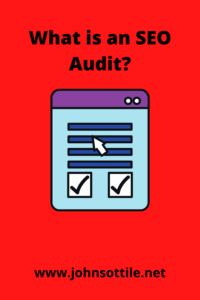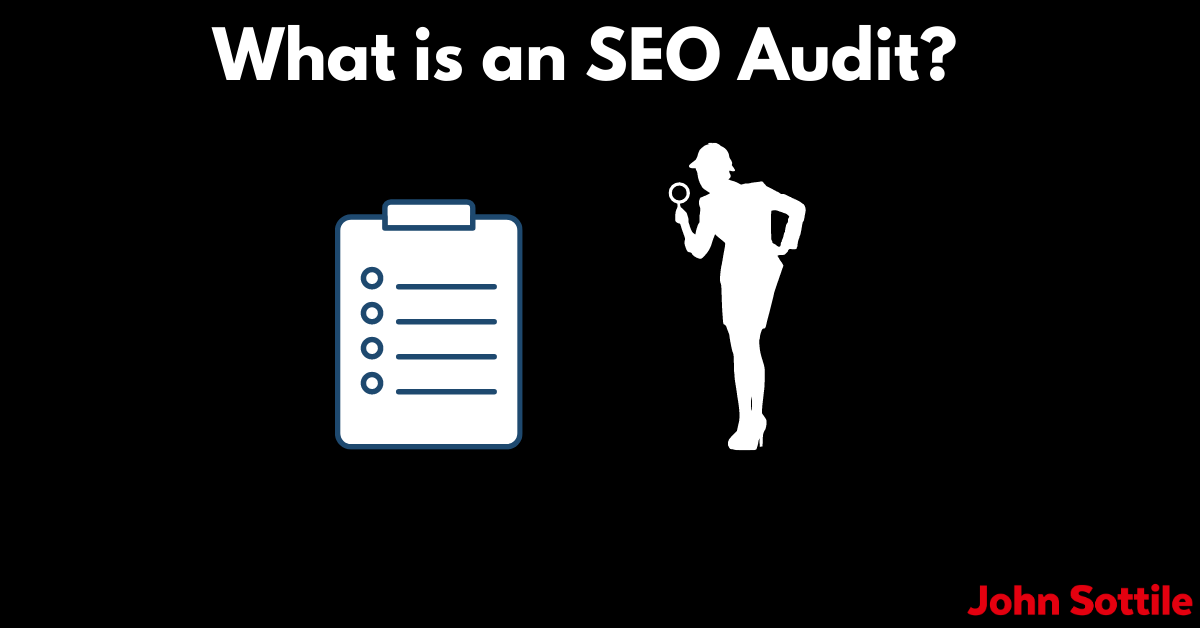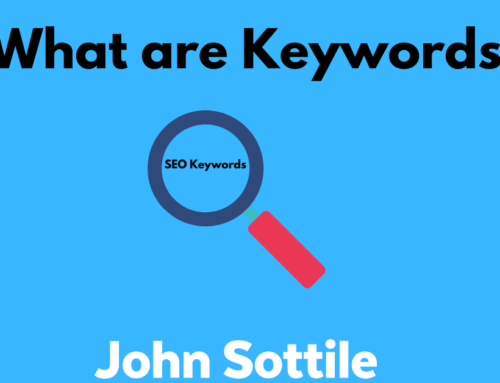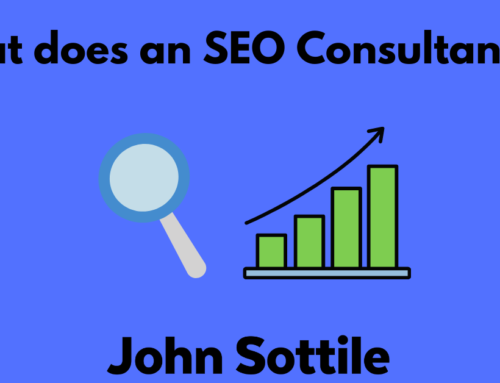If you have a website then you’ve probably heard about something called SEO or search optimization.
Search engine optimization is the process of improving the current status of your website in order to expand your reach and increase conversions.
If you’re looking to learn how to optimize your website, then it makes the most sense to start out with an SEO audit of your website.
Be sure to check out my post about SEO Acronyms if you need to familiarize yourself with certain terms
What is an SEO Audit?
An SEO audit is a thorough examination of your website in an effort to identify ways it can be improved upon. With the right SEO tools, an SEO expert can take a look at your websites performance and help recommend and implement changes that will help bring you more sales and traffic.
An SEO audit can tell you how much organic traffic you’re receiving monthly. You can also identify the keywords you’re currently ranking for, as well as find keyword recommendations for new targets to create pages for.
What’s included in an SEO audit?
There are three main components that an SEO audit generally covers, which is on-page SEO, off-page SEO, and technical SEO.
On-page SEO factors:
Title Tags and Meta Descriptions – These tell search engines and users what your pages are about. Be sure to include your focus keywords.
Header Tags (H1-H6) – Header tags help identify the focus of your content and the different topic clusters throughout your pages.
Top Performing Page – Are your pages you currently have bringing in traffic? You want to focus on your top performing pages and optimize them first before you start to create more landing pages.
Internal Linking – Internal linking is leveraging your existing pages to tell Google what they’re about. Make sure you cross reference your posts when applicable to boost your pages.
Optimize Your Images – You need to ensure that you compress your image files to reduce the loading speed of your website. You can also use ALT text to define the context of your image to search engines. For maximum efficiency, be sure to include some keywords in the file name of your image. (Example: john_sottile_seo.jpg)
User Experience – Has your website been designed with an end-goal in mind? Can your customers find what they’re looking for? While building an optimized website for search engines may sound ideal, it’s important to remember that your focuses should always be on your users and their intent (user intent). This will help improve your conversion rate optimization (CRO).
Off-Page SEO Factors:
Link Building – The main component of Off-page SEO is your link-building strategy. If you’re a local business, it’s essential to build a foundation of citation links featuring your Name, Address, and Phone Number, to start creating local relevance in search engines. These will also help kickstart your trust and authority factors. You can also use guest posting to build your brand awareness. Additionally, SEO tools have backlink checkers that allow you to research your competitors and research their backlink profiles. You can use these tools on your own website as well to identify and disavow any toxic links thrown at you.
Content Marketing – While creating content is more of an on-page SEO factor, how you promote that content will affect how it performs in the search engines. You can use PPC or social media (organic and paid) to send traffic to your website. With the additional hits and time spent on page you receive; this should help send some healthy ranking signals to Google. Although there is no direct correlation between social media and rankings, it would be fair to conclude that brands who generate more buzz on social media are more likely to be sought after on the world wide web.
Technical SEO –
Google Analytics / Webmasters – Having these free tools is essential for any SEO or business in general. These provide you with everything Google currently knows about your website. It also helps you identify issues and provide you with solutions on how to correct them.
Mobile Friendliness – Your website needs to be optimized for various devices, including mobile phones and tablets.
Robots.txt and Sitemap – These help tell search engines which pages should be indexed. Your site map can also help users locate specific pages they’re looking for if you have a larger website.
HTTPs installed – Nowadays, having a secure website is essential. Web browsers now identify websites that aren’t secure, which can push users away from your website.
Bonus – Social Media Audits
Brands should take advantage of any free social media properties they can create to spread the word about their business. A social media audit can help identify the weaknesses and negligence in your social media efforts. Without a consistent social media strategy, you’re basically talking to yourself. Use social media to create compelling content and offers to promote to your audience. You can also use social media to help tell your brand’s story and share your customers experiences as well. Even if you decide you don’t “need” social media for your business, at the very least you should claim a username and send a link back to your website.
Do you need an SEO audit?
You can use my Staten Island SEO services to grow your business today! Feel free to reach out to me through my contact form with a question about marketing your business.






